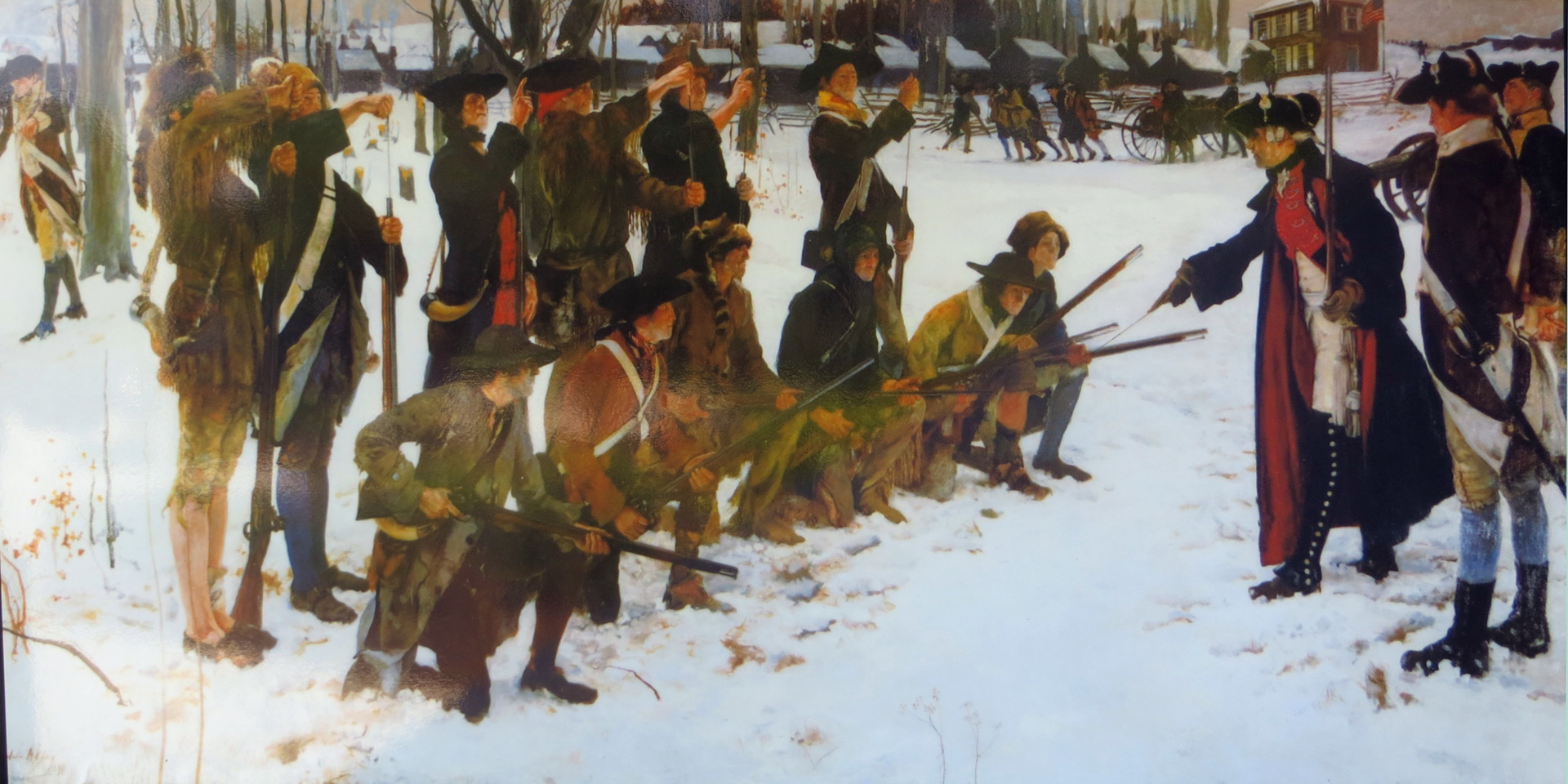Poetry, Virtue, and Preparing for Trials
For all your days prepare,
“Preparedness” by Edwin Markham
And meet them ever alike;
When you are the anvil, bear—
When you are the hammer—strike.
Everyone should equip their soul with a suitable arsenal of poetry. Maintaining an arsenal is a symbolic act, one which testifies to a vision of the world in which real dangers exist, and probably won’t disperse voluntarily.
My family recently spent a week in Colonial Williamsburg vacationing and bringing our sons’ pre-industrial American history studies to life. The Magazine and Armory looms large in the town’s layout. In the 18th century, the Colony kept itself well-stocked in case of emergency—after all, official help from the army was an ocean away, and after an S.O.S. reached kingly ears, and parliament raised a force, organized transport, and provisioned the ships, the army still had around eight weeks of rollicking travel before it could be any help to the colonials. This is why the Virginia militia laws required every able-bodied freeman between the ages of 16 and 60 to own a long gun, a sidearm, and prescribed weights of shot and powder, or else be summoned to court, fined, and forced to purchase personal arms. The community might need to hold out for almost half a year before the professionals made an appearance. The wisdom of the Coast Guard’s motto, “semper paratus,” was taken for granted.
There is a slight paradox involved in preparing for some uncertain trouble in the future. The man at peace often feels at peace. A man who prepares for an alarming future as the sun shines, the birds chirp merrily, and the trees sway in a cooling breeze risks ridicule from neighbors, who may wish to blithely enjoy their peace and prosperity as if it is sure to last.
While America may no longer be a frontier, and wolves and warring tribes may no longer lurk beyond the shadows of our borders, the Christian gentleman is alert to dangers in his midst, knowing his life’s pilgrimage is not through a playground, but a battleground.
The Classical Schooling movement’s greatest difference from other alternatives is its understanding that knowledge and skills alone are not sufficient preparation for a good life. Qualities like verity, humility, prudence, courage, and faithfulness must be cultivated if the pupil is to be adequately provisioned for life’s great trials. Knowledge and skill must be joined to an array of virtues in each child’s soul.
The Classical Schooling movement’s greatest difference from other alternatives is its understanding that knowledge and skills alone are not sufficient preparation for a good life.
Edwin Markham’s poem, sturdy and light as a well-forged dagger, reminds us with pithy, memorable imagery about the two constituent parts of one cardinal virtue in particular: courage.
Fortitude, or bravery, or courage, is both the ability to endure trials without crumbling, and a willingness to attack and bar evil’s way when necessary. Endurance and attack are both facets of fortitude, but of the two, endurance is needed in life far more often. What is more, fortitude isn’t some special virtue reserved for the few who find themselves in combat. As Josef Pieper puts it, “because justice and goodness do not automatically prevail on their own, because on the contrary their success depends upon human effort, therefore courage is to be counted among the elements that make a person right.” All people must learn courage in order to “fight the good fight of faith,” and encountering poetry is one of the best ways to learn that virtue.
One of the many assets of a poem is its memorableness. While prose, such as what you are reading now, finds its force in logical unfolding, and is best remembered schematically, poetry’s shape—its sounds and images—make it suited for storing and recalling whole. “The job of a poet,” wrote Robert Frost, “is to lodge a few lines where they’ll be hard to get rid of.” Rephrased for present purposes, the poet’s job is to furnish the soul’s arsenal. For the soul will encounter hazards in life. The question is not if, but when.
Here’s the rub: the virtues must be taught before they’re needed. And as most teachers know quite well, “you’ll need this later in life—trust me” rarely convinces a student to engage.
Poetry gallops to our aid here. Instead of trying to argue us into virtue, poetry strengthens the will by conveying truth in an attractive form. Good poems are a delight to hear, read, and recite. And once the truth of a poem is taught (or caught), it is then easily carried about in the memory.
So teach Markham’s poem to your children, your students, yourself! There will come a day when they need to remember to imitate the anvil. Some days are inevitably like that, and any work worth doing must bear up under blows. As Pieper reminds us, endurance is not a passive virtue, rather, “endurance comprises a strong activity of the soul, namely, a vigorous grasping of and clinging to the good.”
There may also come a day when we need to be ready for a different mode of action. Again, Pieper puts this truth well: “The brave man not only knows how to bear inevitable evil with equanimity; he will also not hesitate to ‘pounce upon’ evil and bar its way, if this can reasonably be done. This attitude requires readiness to attack, courage, self-confidence, and hope of success; the trust that is part of fortitude signifies the hope which a man puts in himself: naturally in subordination to God.” Especially in times that try men’s souls, we need people who are prepared for action.
When you are the hammer—strike.





